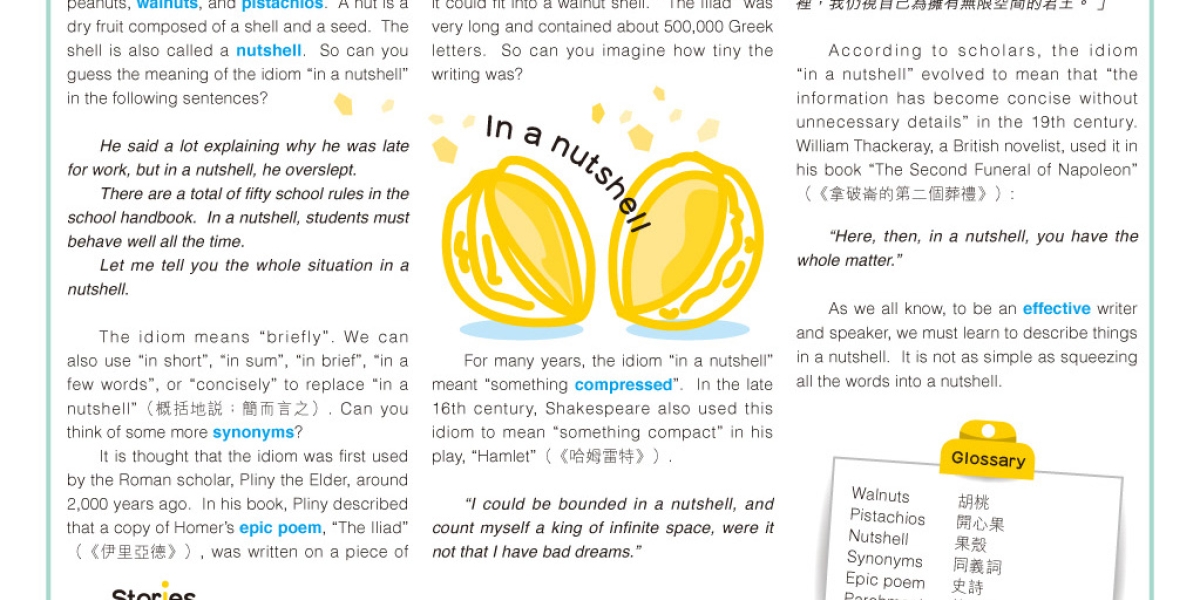
In a nutshell
A lot of us love eating nuts such as peanuts, walnuts, and pistachios. A nut is a dry fruit composed of a shell and a seed. The shell is also called a nutshell. So can you guess the meaning of the idiom “in a nutshell” in the following sentences?
He said a lot explaining why he was late for work, but in a nutshell, he overslept.
There are a total of fifty school rules in the school handbook. In a nutshell, students must behave well all the time.
Let me tell you the whole situation in a nutshell.
The idiom means “briefly”. We can also use “in short”, “in sum”, “in brief”, “in a few words”, or “concisely” to replace “in a nutshell”(概括地說;簡而言之). Can you think of some more synonyms?
It is thought that the idiom was first used by the Roman scholar, Pliny the Elder, around 2,000 years ago. In his book, Pliny described that a copy of Homer’s epic poem, “The Iliad” (《伊里亞德》), was written on a piece of parchment and the writing was so small that it could fit into a walnut shell. “The Iliad” was very long and contained about 500,000 Greek letters. So can you imagine how tiny the writing was?
For many years, the idiom “in a nutshell” meant “something compressed”. In the late 16th century, Shakespeare also used this idiom to mean “something compact” in his play, “Hamlet”(《哈姆雷特》).
“I could be bounded in a nutshell, and count myself a king of infinite space, were it not that I have bad dreams.”
「若非我總做惡夢,即使把我困在果殼裡,我仍視自己為擁有無限空間的君王。 」
According to scholars, the idiom “in a nutshell” evolved to mean that “the information has become concise without unnecessary details” in the 19th century. William Thackeray, a British novelist, used it in his book “The Second Funeral of Napoleon” (《拿破崙的第二個葬禮》):
“Here, then, in a nutshell, you have the whole matter.”
As we all know, to be an effective writer and speaker, we must learn to describe things in a nutshell. It is not as simple as squeezing all the words into a nutshell.







